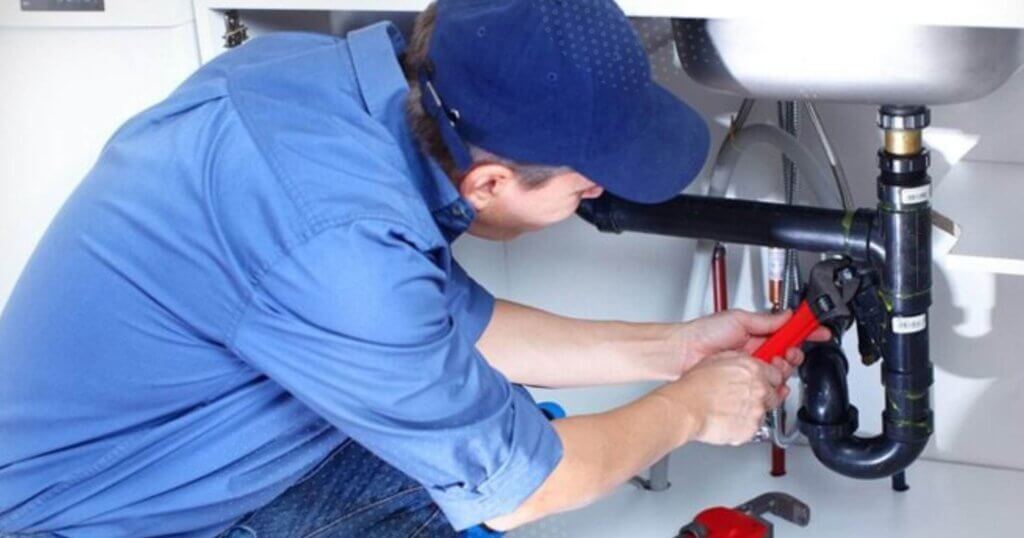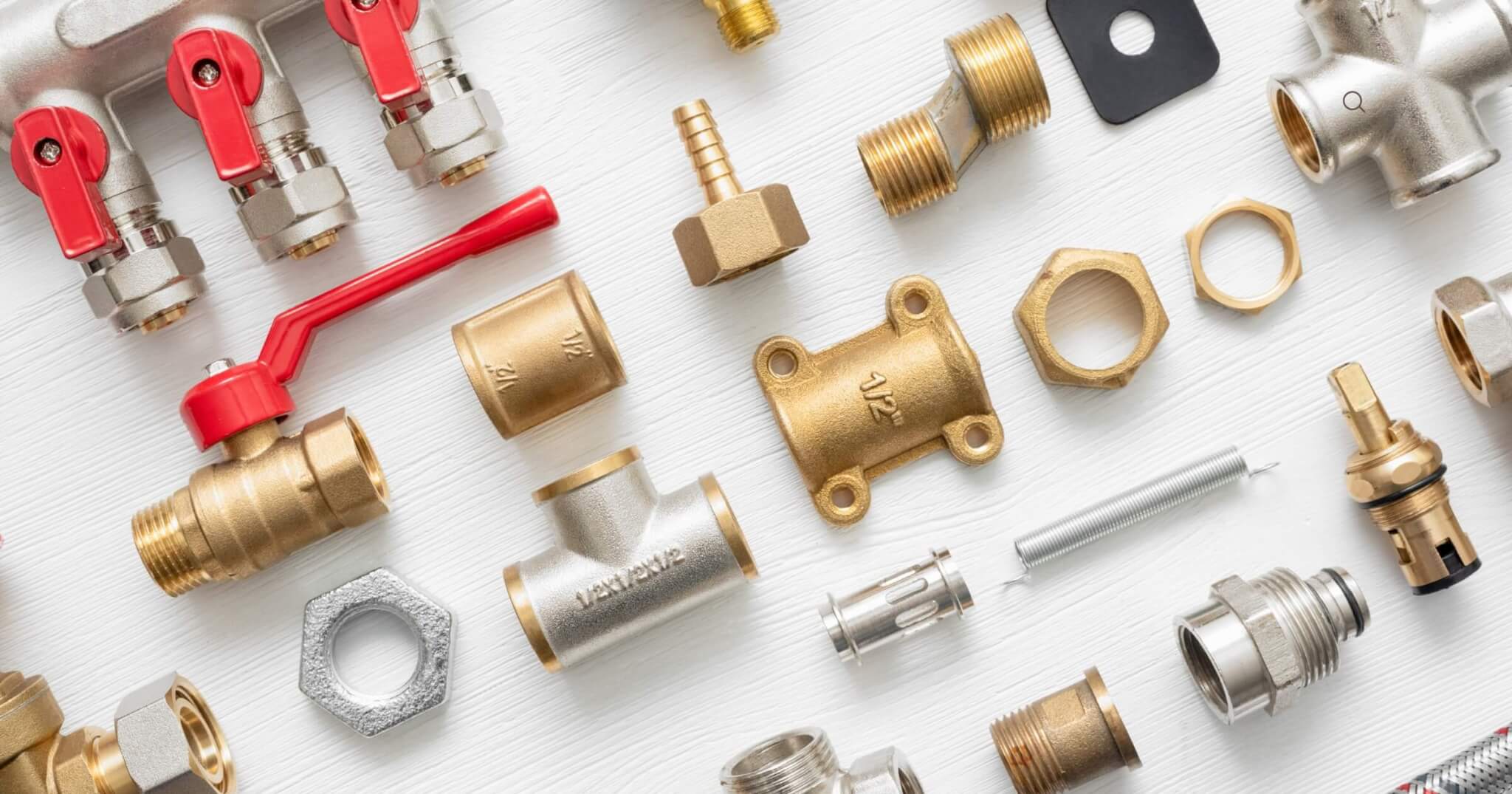A plumbing apprenticeship is the first step to building a successful plumbing career in skilled trades. Through a combination of hands-on training and classroom instruction, aspiring plumbers gain the skills necessary to install, maintain, and repair plumbing systems. Understanding how to get a plumbing apprenticeship and how long it takes can help you plan your career path.
This article covers the essential steps, current plumber apprenticeship pay rates, and what certifications you’ll need to succeed.
What does a plumbing apprentice do?
A plumbing apprentice works under the supervision of a licensed journeyman or master plumber, learning the ins and outs of the trade. Apprentices are responsible for assisting with various tasks, including installing and maintaining pipes, fixtures, and drainage systems. They also learn to read blueprints and troubleshoot issues.
During the apprenticeship, students will gain exposure to different working environments including residential homes and commercial buildings. They will also gain hands-on experience using specialized tools like pipe cutters, wrenches, and soldering equipment. Over time, apprentices take on more complex tasks, gradually building their expertise and confidence. The hands-on experience prepares them to transition into a licensed plumber role after completing the necessary training and exams.

Plumber apprenticeship pay rates
Plumbing apprentices typically start earning 30-50% of a licensed plumber’s wage. In 2024, the average hourly pay for plumbing apprentices ranges from $15 to $20, depending on the location and type of employer. As they gain experience, their pay increases incrementally each year.
- 1st year: $15-$18 per hour
- 2nd year: $18-$20 per hour
- 3rd year: $20-$25 per hour
- 4th year: $25-$30 per hour
Licensed plumbers earn significantly more once they complete their apprenticeship and pass their licensing exam. Journeyman plumbers typically make between $50,000 and $70,000 annually, while master plumbers can earn upwards of $80,000, with some making over $100,000 depending on location and specialization.
Types of plumbing certifications
Aspiring plumbers need to obtain various certifications depending on their career goals and state requirements. Some of the most common certifications include:
- Apprentice Plumber Certificate: Required to begin work as an apprentice under a licensed plumber.
- Journeyman Plumber License: Allows individuals to work independently after completing the apprenticeship and passing the required exams.
- Master Plumber License: Enables plumbers to operate their own business, supervise other plumbers, and take on more complex projects.
- Specialty Certifications: Includes certifications in gas fitting, backflow prevention, and medical gas piping, which allow plumbers to work in niche areas.
How to get a plumbing apprenticeship in America
Assess local state requirements
Each state sets its own rules for becoming a plumber, including licensing and apprenticeship requirements. Some states require apprentices to register with the state licensing board before they can begin working. It’s important to check with your state’s licensing authority to ensure you meet the necessary criteria. Requirements may include age, educational background, and passing a background check.
Complete your high school diploma
Most apprenticeship programs require a high school diploma or GED. A strong foundation in math, science, and technical skills is beneficial for understanding plumbing concepts and calculations. Some high schools offer vocational programs that provide early exposure to the trades, giving students a head start in pursuing a plumbing career.
Choose a plumbing specialization
Plumbers can specialize in various areas, including residential, commercial, and industrial plumbing. Deciding which path interests you most can help guide your apprenticeship choices. Specialized certifications can enhance your qualifications and expand your career opportunities after completing your apprenticeship.
Find a plumbing apprenticeship program
There are several ways to find a plumbing apprenticeship in the United States. You can apply through union-sponsored programs, such as those offered by the United Association (UA), or non-union programs through private companies and trade schools. Many community colleges and technical schools also partner with local plumbing companies to provide apprenticeship opportunities.
Apply
Once you’ve identified a suitable apprenticeship program, submit your application. This may involve providing transcripts, proof of age, and letters of recommendation. Some programs may also require an entrance exam or interview. After acceptance, you’ll begin the on-the-job training and coursework required to become a licensed plumber.
How long is a plumbing apprenticeship
A plumbing apprenticeship typically lasts between 4 to 5 years, depending on the state and program requirements. During this time, apprentices complete around 8,000 hours of on-the-job training and 576 hours of related classroom instruction. The hands-on experience is critical, allowing apprentices to develop practical skills and knowledge in real-world settings.
After completing the apprenticeship, individuals must pass a licensing exam to become a journeyman plumber. Those seeking to advance to a master plumber level may need additional years of experience and must pass a more complex examination.

How much does a plumbing apprenticeship cost
The cost of a plumbing apprenticeship varies depending on the type of program and location. While union-sponsored apprenticeships often cover training costs through employer sponsorships, non-union programs and technical schools may charge tuition fees.
Typical costs include:
- Application fee: $50-$100
- Tuition for classroom instruction: $1,000-$2,500 annually
- Books and materials: $200-$500
- Licensing exam fee: $100-$300
Many apprenticeships are paid positions, offsetting the cost of education and allowing apprentices to earn while they learn.
Is a plumbing career right for you?
Plumbing can be a rewarding and stable career, but it’s important to assess whether it’s the right fit for you. Before committing to a plumbing apprenticeship, take the time to reflect on your personal strengths and consider the following factors:
- Comfort with physical labor and working in tight spaces: Plumbers spend a significant amount of time on their feet, lifting heavy materials, bending, and maneuvering into cramped areas like crawl spaces and under sinks. Being physically capable and comfortable in these situations is essential for success in this field.
- Willingness to work in varying weather conditions: Plumbing work isn’t limited to indoor environments. Plumbers often work outside, especially during installations and repairs in new construction or infrastructure projects. This means being prepared to work in extreme heat, cold, or rain, depending on the season.
- Ability to troubleshoot and solve complex problems: Plumbing involves diagnosing issues and finding effective solutions, often under tight deadlines. Whether it’s locating a leak, repairing a faulty water heater, or installing a complex system, problem-solving skills are critical for keeping projects on track.
- Strong attention to detail and adherence to safety protocols: Safety is a top priority in the plumbing industry. Plumbers work with potentially hazardous materials, pressurized systems, and heavy tools. A strong focus on detail and strict adherence to safety standards help prevent accidents and ensure the longevity of plumbing systems.
- Interest in technical skills and learning new techniques: Plumbing technology is constantly evolving, with advancements in water-saving systems, smart home devices, and pipe materials. A successful plumber stays informed and continually hones their technical skills to meet the demands of modern plumbing.
If these qualities align with your strengths and interests, a plumbing apprenticeship may be a great career choice.
Bottom line
A plumbing apprenticeship is an excellent path to building a career in the trades. It combines hands-on training with classroom learning, preparing you to tackle the challenges of the plumbing industry. Apprenticeship pay rates are competitive, and with the right certifications, you can advance to higher-paying roles as a journeyman or master plumber.
Want to stay updated on the latest construction news? Our newsletter keeps you updated on the latest industry insights and career opportunities.


